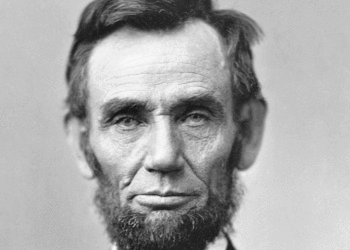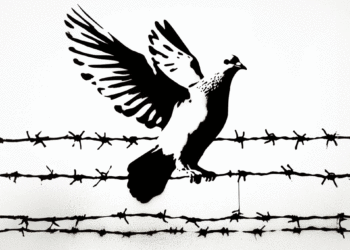A majority of American Jews support J Street’s position that only a two-state solution can preserve Israel as a secure, Jewish and democratic nation
By STEVEN FOLDES
When you finish touring Yad Vashem and your heart is nearly broken from the depictions of evil you have seen, you emerge onto a balcony overlooking a broad vista of Jerusalem. At that moment you understand viscerally the essential role of Israel in gaining control over our destiny as a people.
For me, as a child of Shoah survivors, a secure and Jewish Israel is necessary but not sufficient. For Yad Vashem teaches other compelling lessons — intolerance and the suppression of dissent, even if justified by some claim of higher purpose, are on the path to oppression, or worse. Dominating another people by force, making them second-class citizens and systematically discriminating against them through the power of the state, destroys the moral fiber of a people and undermines the legitimacy of a nation.
The legacy of the Holocaust with which I live suggests that Israel must exist as secure and Jewish, and also just and democratic — as envisioned by its Zionist founders.
I remember the tense days in 1967, when it seemed that an immense enemy army would annihilate the young Israeli state, and the euphoria when, in just six days, Israel prevailed spectacularly. But for some of us, that euphoria gradually dissipated when it sank in that Israel had also gained control over immense territories and a million Palestinians.
Then, following the Yom Kippur War in 1973, the start of the Israeli settlement movement — initially tolerated and eventually supported by the state — set off a protest movement in Israel and the United States. Rabbi Arnold Jacob Wolf, then the Hillel director at Yale, organized many rabbis and Jewish intellectuals to create Breira, or “alternative.” Following like-minded groups in Israel, Breira demanded that Israel negotiate with the PLO, dismantle the then-new West Bank settlements, and pursue a two-state approach to resolve the conflict. Breira argued forcefully for Israel’s right to exist, even while protesting Israel’s occupation of the West Bank and Gaza, and its treatment of the Palestinians.
But after Israel’s hard-fought victory in the Yom Kippur War, offering any criticism of Israeli policy seemed, as Leonard Fein put it, “like criticizing your mother.” It seemed irrelevant that Breira’s positions were in solidarity with many Israeli critics. In the context of renewed fears of Jewish vulnerability, and especially following the passage, in 1975, of the infamous United Nations resolution equating Zionism with racism, American Jewish leaders denounced supporters of Breira as naïve at best, and as self-hating Jews, anti-Semites and traitors. Behind the public attacks on Breira, threats of job loss and blackballing against rabbis and other supporters eventually destroyed it.
This history is important because these events effectively silenced for decades any broad community discussion of alternative perspectives on the Israeli-Palestinian conflict. Even now, publicly criticizing Israeli government policy still poses potential risks, especially for Jewish professionals.
But J Street is forging a new era in the American Jewish community. Unlike Breira, a bold but politically unsophisticated organization with three staffers, and some small and marginalized groups that came after, J Street has more than 50 staff members with extensive political expertise. Its leader is Jeremy Ben-Ami, and he is politically moderate, judicious, articulate and highly credible. While only four years old, J Street has already acquired substantial influence in both Jewish and American political circles.
To be sure, J Street’s very existence has generated controversy and revived echoes of the old attacks on dissent, but it has also created a new opportunity for meaningful discussion. In the Twin Cities, J Street Minnesota and several congregations, rabbis and the Jewish Community Relations Council of Minnesota and the Dakotas (JCRC) have initiated serious conversations, such as a recent discussion hosted by Mount Zion Temple. The large attendance and appreciative comments at these events demonstrate that the community seems hungry for the conversation that we have just begun to have.
These discussions help dissipate the fear of dissenting publicly and provide space for people to express their doubts about Israeli government policy as well as their love of Israel, and to learn and reach more informed opinions about the conflict.
Although the Israeli-Palestinian conflict remains unsolved there have been changes on the ground and in our perceptions. Israel continues to live in a dangerous neighborhood, but many of us have revised our perceptions of its relative vulnerability. The settlements have evolved from bargaining chips into a full-fledged occupation, and there are strong Israeli voices in opposition. The Palestinians remain frustratingly difficult to deal with, but our perceptions of them and the Arab world have become more nuanced.
We have come to appreciate that the inexorable demographic trends in Israel and in the occupied territories — what Peter Beinart aptly calls “non-democratic Israel” — pose as much of a danger to Israel’s security and its character as a Jewish and democratic state as Palestinian terrorism and hostile Arab states. And we are beginning to recognize that time is not on our side.
These changes have led many of us to support a two-state solution, the only solution that can preserve Israel as a secure, Jewish and democratic nation. J Street’s recent polls of American Jews suggest that the majority of us, like a great many Israelis, supports this approach. Most now believe that an agreement akin to what Prime Minister Ehud Olmert and President Mahmoud Abbas nearly concluded in 2008 is historically inevitable even if, as Daniel Seidemann often says, it remains politically impossible.
The bridge between the historically inevitable and the politically impossible will not build itself. Slavish support of right-wing Israeli government policy by American Jews has, if anything, delayed it. Building that bridge will take the kind of courageous leadership by Israelis and Palestinians that has been in short supply recently, and it will take American diplomacy and pressure on both parties.
I will work to help build that American pressure: to impress on our elected officials that we care and that they must help turn the politically impossible into the historically inevitable. To me, this is what it means to be pro-Israel.
***
Steven Foldes, Ph.D., is co-chair of the advocacy committee of J Street Minnesota.
(American Jewish World, 5.25.12)





















I believe that a bottom line that should often be stressed is that, while it will be difficult to obtain, a just, comprehensive, sustainable resolution of the Israeli/Palestinian conflict is essential if Israel is to be able to avert renewed conflict, effectively respond to her economic, social, and environmental problems, and remain both a Jewish and a democratic state.